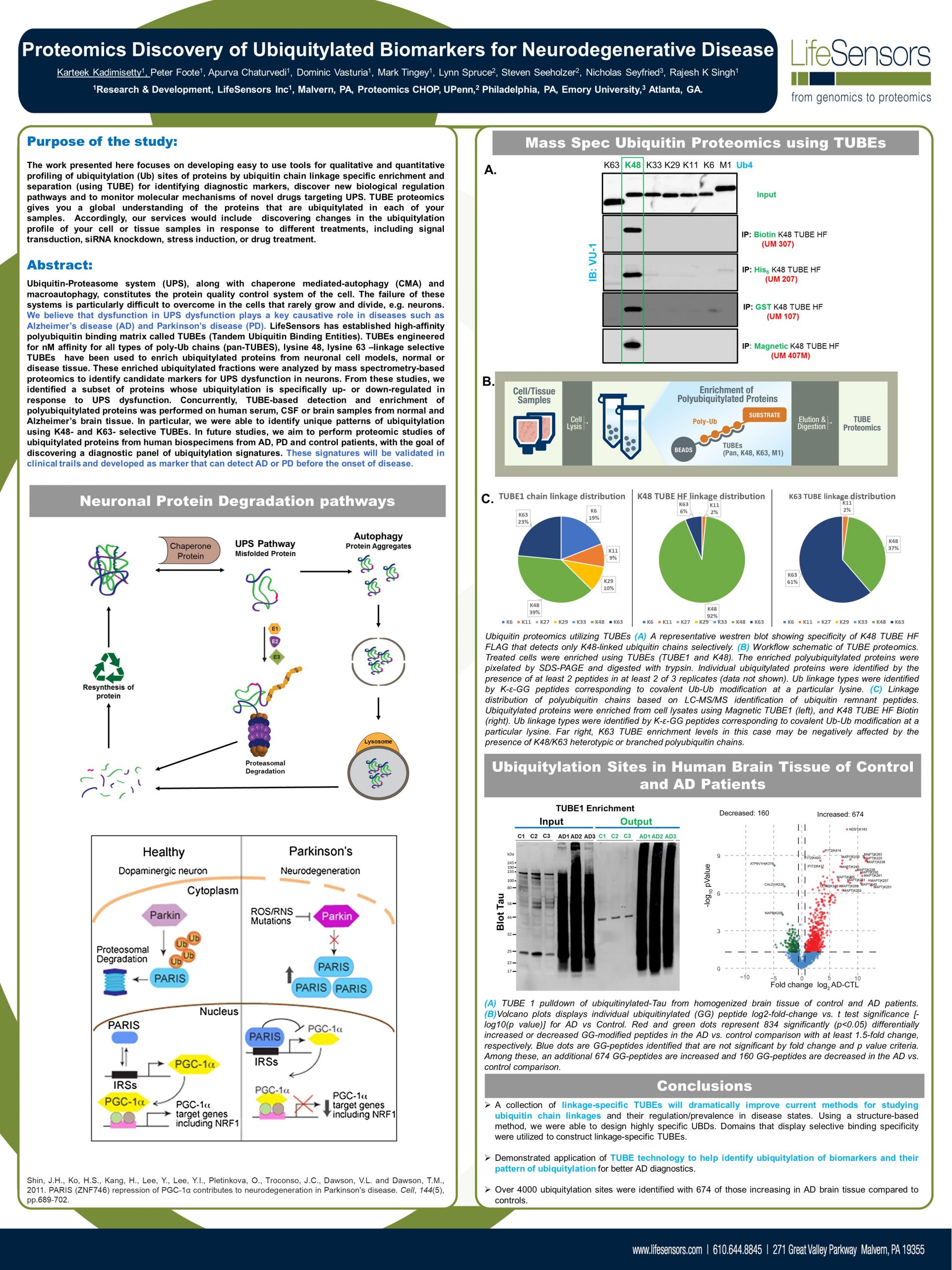
ABSTRACT
Ubiquitin-Proteasome system (UPS), along with chaperone mediated-autophagy (CMA) and macroautophagy, constitutes the protein quality control system of the cell. The failure of these systems is particularly difficult to overcome in the cells that rarely grow and divide, e.g. neurons. We believe that dysfunction in UPS dysfunction plays a key causative role in diseases such as Alzheimer’s disease (AD) and Parkinson’s disease (PD). LifeSensors has established high-affinity polyubiquitin binding matrix called TUBEs (Tandem Ubiquitin Binding Entities). TUBEs engineered for nM affinity for all types of poly-Ub chains (pan-TUBES), lysine 48, lysine 63 –linkage selective TUBEs have been used to enrich ubiquitylated proteins from neuronal cell models, normal or disease tissue. These enriched ubiquitylated fractions were analyzed by mass spectrometry-based proteomics to identify candidate markers for UPS dysfunction in neurons. From these studies, we identified a subset of proteins whose ubiquitylation is specifically up- or down-regulated in response to UPS dysfunction. Concurrently, TUBE-based detection and enrichment of polyubiquitylated proteins was performed on human serum, CSF or brain samples from normal and Alzheimer’s brain tissue. In particular, we were able to identify unique patterns of ubiquitylation using K48- and K63- selective TUBEs. In future studies, we aim to perform proteomic studies of ubiquitylated proteins from human biospecimens from AD, PD and control patients, with the goal of discovering a diagnostic panel of ubiquitylation signatures. These signatures will be validated in clinical trails and developed as marker that can detect AD or PD before the onset of disease.
